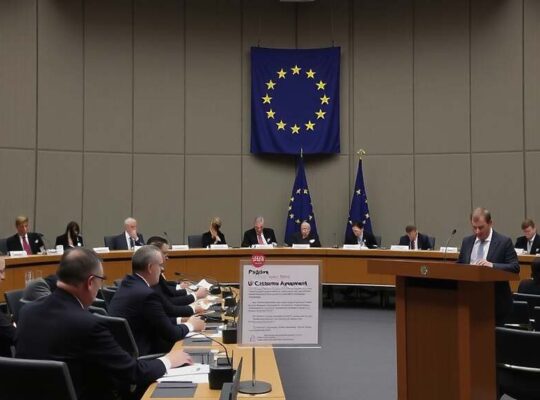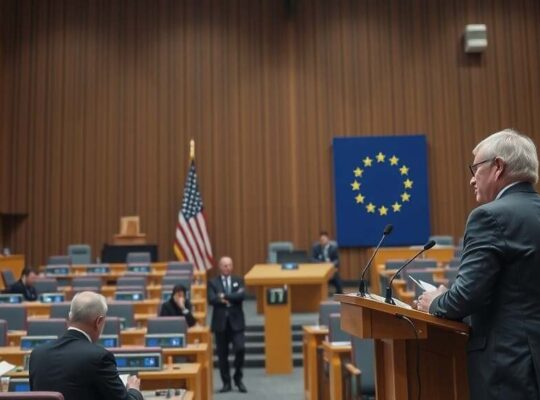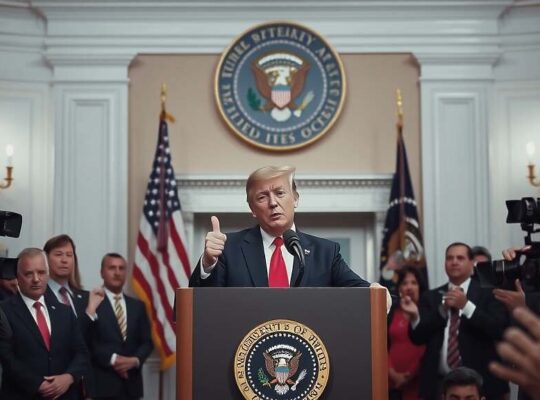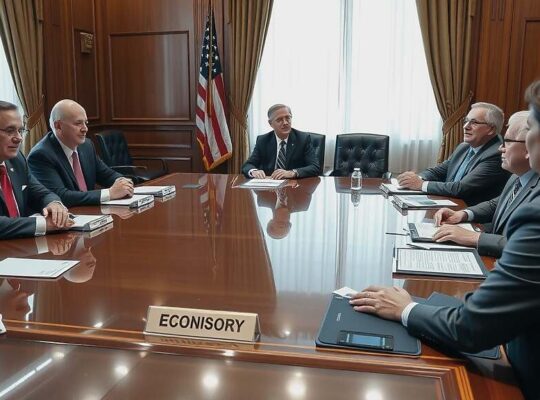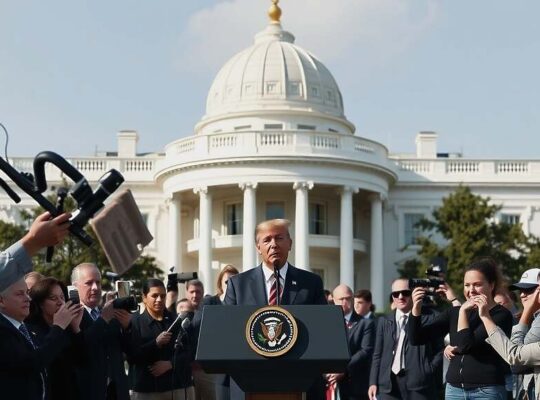The United States is poised to escalate its trade war with China, with former President Donald Trump announcing a sweeping 100% tariff on all Chinese imports, slated to take effect no later than November 1st. This measure, communicated via Trump’s “Truth Social” platform, threatens to further destabilize global markets and intensifies the increasingly volatile relationship between the two economic superpowers.
Trump’s declaration arrives as retaliation for China’s own recently unveiled export controls, scheduled to commence on the same date. These Chinese restrictions target specific industries, including a stricter regime for the export of rare earth minerals – vital components in a vast range of technological products, from smartphones to electric vehicles and currently sourced by German companies to a significant two-thirds. Further restrictions are anticipated for arms manufacturers and certain players in the semiconductor sector.
Trump characterized China’s actions as “absolutely unprecedented and a moral outrage in the treatment of other nations” signaling a hardening of his previously implemented trade policies. The announcement raises serious questions about the future of global trade and the potential for a tit-for-tat escalation that could significantly impact businesses and consumers worldwide.
Beyond the tariff implementation, the US is also planning to introduce export controls on “critical software” a move that echoes China’s restrictive measures and suggests a broader effort to limit technological transfer and maintain a competitive edge. Critics argue that such actions, while presented as defensive, carry the risk of triggering a technological cold war, hindering innovation and ultimately harming the global economy.
The timing of the announcement, coupled with the simultaneous Chinese restrictions, underscores the fragility of the international trade landscape and highlights the political pressure mounting on both administrations to demonstrate economic and technological strength. This latest development exposes the inherent vulnerabilities within global supply chains and prompts a critical examination of the reliance on specific nations for essential resources and technologies. The long-term ramifications for international relations and economic stability remain uncertain.





